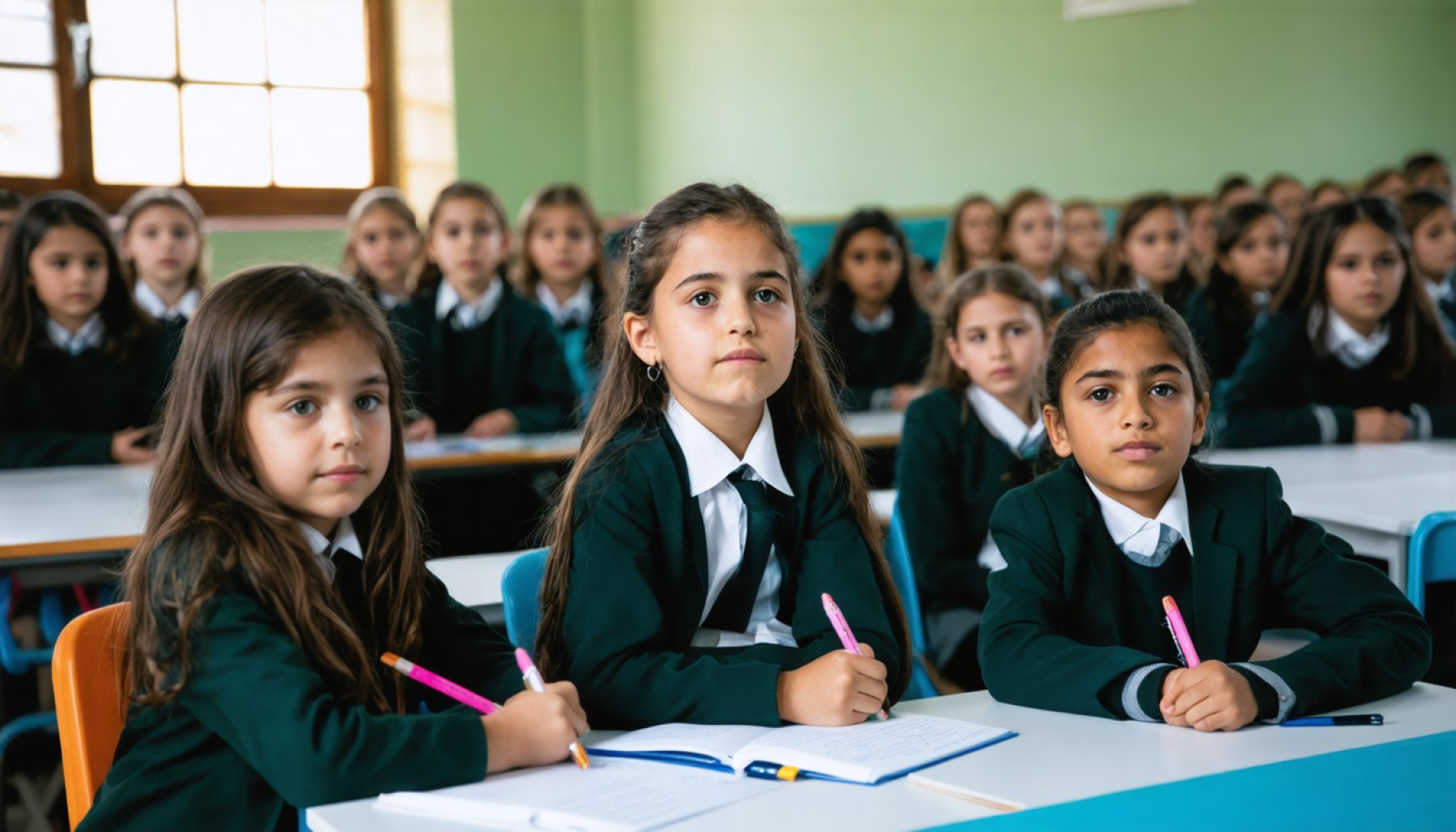- Valencian families will vote on choosing between Valencian and Spanish as the primary language of instruction for their children’s education.
- The decision follows the Law of Educational Freedom, introduced by the People’s Party and Vox coalition to challenge the previous administration’s policies.
- Political figures, notably Carlos Mazón, criticize the previous “Catalan model,” while opposition parties and language groups defend the Valencian language’s role in schools.
- Pro-Valencian advocates, including Plataforma per la Llengua, have faced restrictions, such as the removal of supportive banners from schools.
- This debate mirrors a broader national discussion on linguistic diversity versus cultural preservation.
- The issue underscores parental rights versus cultural heritage, with an uncertain outcome affecting Valencia’s educational and cultural landscape.
A pivotal vote has stirred the Valencian region, allowing families with children enrolled in local schools to select the primary language of instruction—a choice between Valencian and Spanish. More than 570,000 families are poised to cast their votes from late February to early March. This move stems from the newly established Law of Educational Freedom, enacted by the People’s Party and Vox coalition in mid-2024, which aims to dismantle the perceived linguistic imposition placed by the previous left-leaning administration.
As political leaders rally across the region, the contrast between viewpoints becomes stark. In Orihuela, Carlos Mazón fervently denounces the “Catalan model,” promising an end to what he perceives as the ideological misuse of the Valencian language in education. His stance, however, has met fervent opposition, particularly passionate in Castelló, Valencia, and Alicante, where language advocacy groups and unions argue that the choice is less about freedom and more a strategic setback for the Valencian language in classrooms.
Compounding the tension, educational authorities recently mandated the removal of pro-Valencian banners in several schools, underscoring the divisive atmosphere. Advocates from Plataforma per la Llengua and other organizations urge unity, donning green shirts weekly in support of maintaining a robust Valencian presence in education.
This regional discourse reflects a broader national conversation, reminiscent of Catalonia’s linguistic strategy yet unique in its local application. The heart of the issue lies in whether this linguistic choice is empowering diversity or eroding cultural roots. Critics claim that the dialogue oversimplifies a complex heritage, while defenders argue for parental rights in educational oversight. The outcome remains uncertain, but the debate highlights a profound questioning of identity, culture, and the future of education in Valencia.
Discover the Impact of the Valencian Language Vote on Families and Culture
Understanding the Law of Educational Freedom
The recent enactment of the Law of Educational Freedom by the People’s Party and Vox coalition in Valencia has sparked significant discourse. This legislation allows families to choose whether their children will be taught primarily in Valencian or Spanish, creating a dynamic socio-political atmosphere.
Key Features and Implications
– Linguistic Choice: The law gives more than 570,000 families the ability to decide the primary language of instruction for their children. This is seen by some as a way to empower parental rights and provide freedom of choice.
– Cultural Impact: Opponents worry that choosing Spanish over Valencian in schools could diminish the presence of Valencian culture and language, potentially leading to cultural erosion. Advocates of Valencian emphasize its importance as part of regional identity and heritage.
– Political Landscape: The decision underscores a broader national narrative on linguistic policy, reflecting tensions reminiscent of the Catalan language debates. This positions the Valencian linguistic choice as a microcosm of wider Spanish cultural and political identity battles.
Real-World Use Cases and Trends
– Education and Culture: The shift in language instruction policy highlights the challenge of balancing cultural preservation with linguistic diversity. The choice between Valencian and Spanish can influence the cultural competency and identity of future generations.
– Market and Industry Trends: The educational sector in Valencia may adjust its resources based on these language preferences, potentially affecting textbook sales, teacher employment, and language-specific educational materials.
Pros and Cons Overview
Pros
– Empowerment through Choice: Families are afforded the agency to align their children’s education with personal or cultural preferences.
– Diverse Educational Environment: This could lead to more tailored educational experiences and foster bilingual proficiency.
Cons
– Cultural Dilution: Critics argue that less emphasis on Valencian might endanger the language’s future viability and cultural significance.
– Divisive Atmosphere: The decision may polarize communities, deepening cultural and linguistic divides.
Controversies and Limitations
– Political Allegiances: The decision emerged amidst shifting political alliances, which some interpret as prioritizing political agendas over educational outcomes.
– Implementation Challenges: Ensuring schools can effectively transition and provide quality education in both languages without bias presents logistical hurdles.
Insights and Predictions
– Evolving Identity: The unfolding of this situation could redefine what it means to be Valencian, with long-term implications for cultural identity and heritage.
– Tailoring Educational Policy: This decision may inform how other regions in Spain approach linguistic education, affecting national policy discussions.
Recommendations and Tips for Families
– Engage with Community Discussions: Staying informed and participating in local educational forums can help families make informed decisions.
– Balance and Blend: Consider enrolling children in extracurricular activities that promote Valencian culture to complement language choices made at school.
– Explore Resources: Utilize resources from language advocacy groups to better understand the implications and opportunities of either choice.
For more information on cultural and linguistic policies, you can visit the official Valencian community website.
With these insights, families can effectively navigate the Valencian education landscape, balancing the choice of language instruction with cultural and social values.
